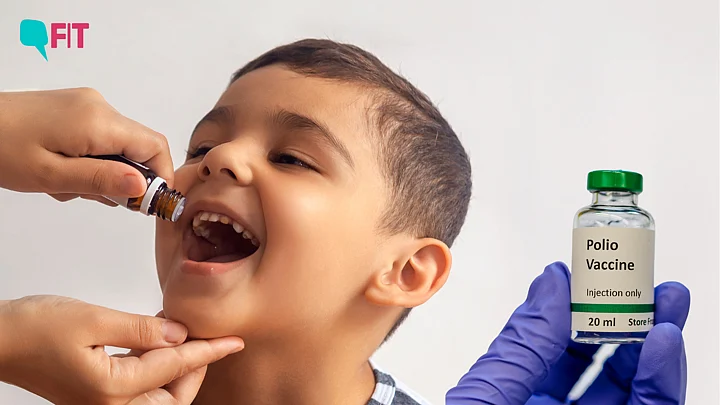While the nation is close to completing a decade of being certified polio-free, children here may still be at risk of contracting this paralysing disease.
When India was hyperendemic with polio, that is when polio was persistent in the population, the nation exported the virus to other countries, threatening global efforts to eradicate the disease (as was the case in 2005 when a strain of polio from Uttar Pradesh was exported to Nepal, Bangladesh, Angola, Namibia, and other locations).
Now, it is India that faces the risk of imported poliovirus as nine wild poliovirus (WPV) cases have been confirmed in Pakistan and Afghanistan.
While surveillance and immunisation programmes are being conducted in these countries, the potential for importation of the virus into India is high considering factors such as international travel, population migration, the contagious nature of polio, and the shared border with Pakistan.
A Decade After Eradication, The Challenges Still Continue
Before 2010, India accounted for more than 60 percent of all polio cases in the world, making it a ‘polio hotspot’.
High population density, poor sanitation, inaccessible areas, and other challenges made polio eradication an ambitious goal.
Yet, after years of persistent work, the last wild polio case in India was reported in 2011 in West Bengal's Howrah district.
Nevertheless, many of the challenges India faced at the beginning of this century – such as poor sanitation and extreme weather conditions – persist even today.
These factors can play a role in rapid poliovirus circulation.
It's not just these factors though. According to data from the 2019-2021 National Family Health Survey conducted by the Ministry of Health & Family Welfare, children under five suffer from malnourishment - stunting (35.5 percent), wasting (19.3 percent), and underweight (32 percent) - in India, as almost a third are considered underweight.
This is of great concern as poor nutrition and overall poor health don’t allow the body to provide a robust immune response to the polio vaccine.
This means that malnourished children may not create enough immunity against the virus, particularly among children who face ongoing bouts of diarrhoea.
What Can India Do to Remain Polio-Free?
In the face of recent polio outbreaks, ongoing mass immunisation campaigns are more crucial now than ever.
This year, considering the polio vaccine shortages, India has strategically planned two sub-national immunisation days (SNID) in 200 districts that are currently considered high-risk.
Moreover, polio surveillance remains critical to detect any possible outbreak.
Ultimately, the government of India, along with NGOs, civil society, and Global Polio Eradication partners, including Rotary, must continue to work toward reaching every unvaccinated or under-vaccinated child in India and worldwide.
If we don’t, it is estimated that unless we eradicate polio within ten years, it could paralyse as many as 2,00,000 children worldwide each year.
This World Polio Day, let’s remind ourselves that we have the power and responsibility to protect the polio-free status of India and end polio for good in the world.
(Deepak Kapur is the Chairman of Rotary International India National PolioPlus Committee (INPPC). This is an opinion piece and the views expressed above are the author’s own. The Quint neither endorses nor is responsible for the same.)

